Stephanie Baynes: Building a Better Future
Aerospace Education and Missionary Service in Uganda
By Maria Esparraguera
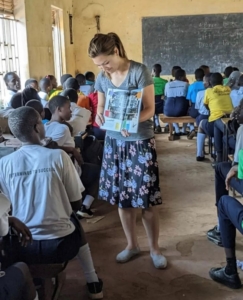 In October 2022, Stephanie Baynes went to Uganda to support Operation One. She is on the Board of Directors of the organization, which started with the goal of child sponsorship but now also seeks to initiate self-sustainment in Uganda. Stephanie has supported the organization for nine years and has traveled to Uganda four times, although COVID has cancelled trips the last few years. She sponsors a Ugandan orphan, Salim, whom she sees when she’s there.
In October 2022, Stephanie Baynes went to Uganda to support Operation One. She is on the Board of Directors of the organization, which started with the goal of child sponsorship but now also seeks to initiate self-sustainment in Uganda. Stephanie has supported the organization for nine years and has traveled to Uganda four times, although COVID has cancelled trips the last few years. She sponsors a Ugandan orphan, Salim, whom she sees when she’s there.
In 2021, the median age in Uganda was 16.7 years. It has the world’s second-youngest population. There are many contributing factors to this, including HIV/Aids, a low life expectancy and high fertility rates, poor health services, and poverty. As one of the poorest countries in the world, about 70% of the land is used for agriculture. One of Mission One’s goals is to help women in Uganda who are often unable to make decisions within their own families or be heard within the community. They commonly have no secondary education, are often married as teenagers, and become mothers shortly thereafter. Their husbands speak for them, control the money, and are deferred to for just about all decisions that impact the woman’s life.
Operation One supports the education of children in Uganda, to include a school in Bugembe. The school sponsors children orphaned by HIV/Aids, mainstreamed by the regular student population, and encourages continued education. Leading into her trip, Stephanie planned two classes on aviation and flying for about 50 students. AOPA sent stickers, and the MD 99s supported with balsam airplanes. Donna Sewell, another MD 99 and CFI, gave Stephanie instructional models.
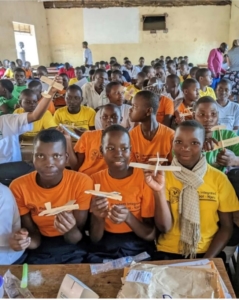 Rather than the planned 50 students, 150 eagerly showed up. Stephanie didn’t have enough planes, but the kids asked so many questions—about the cockpit, instrumentation, how high planes fly, and how fast they could go. In the end, three girls just hovered by Stephanie, asking questions and saying that they wanted to fly.
Rather than the planned 50 students, 150 eagerly showed up. Stephanie didn’t have enough planes, but the kids asked so many questions—about the cockpit, instrumentation, how high planes fly, and how fast they could go. In the end, three girls just hovered by Stephanie, asking questions and saying that they wanted to fly.
The stories of Ugandan families are ones of heartbreak and illness; so many have been wiped out by HIV/Aids. Mothers die with infants on their breast. Often, both parents become ill and pass away, leaving many small children to be taken in by grandparents or non-relatives. Operation One also supports medical services—HIV testing and medications. Efforts are now aimed toward bolstering economic efforts—establishing income-generating projects.
Stephanie’s class was a huge hit as demonstrated by the children’s reluctance to launch their airplanes because they didn’t want to lose them. Her goal is to inspire; she notes that, of the 150 students that listened that day, maybe at least one student will want to become a pilot. Especially for her sponsored child, Salim, Stephanie wants to make his life better when she’s there.
Stephanie’s travel and support of those in need are an inspiration to us all. Her assistance promotes women, and her example is something to which they can aspire. She is intent on making her acts a long gift to others, combining generosity, kindness, and aviation. We know that in the end she will receive more than she ever gave, and will have done more good than she ever dreamed.

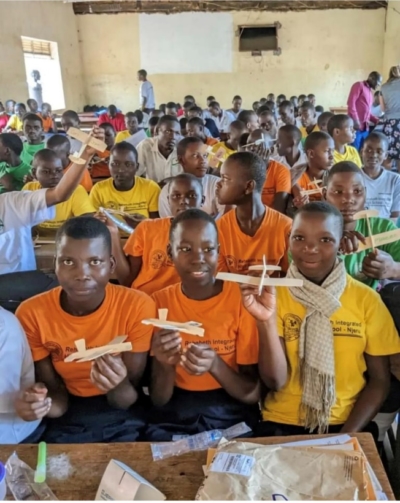
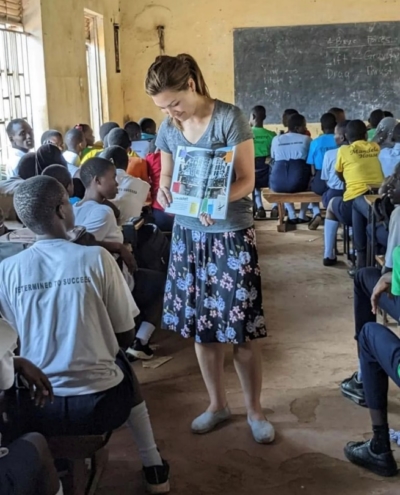
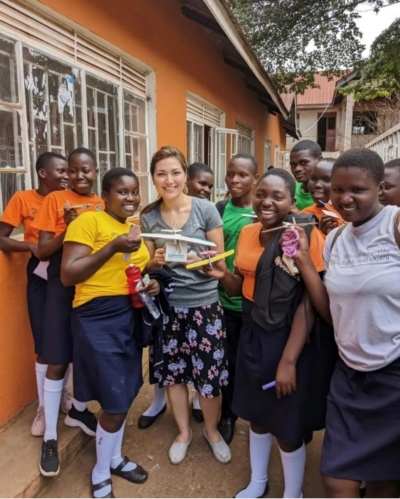
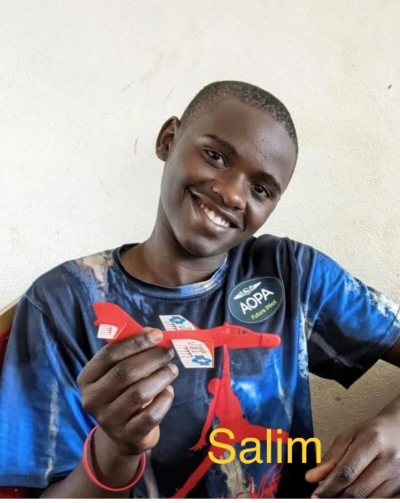
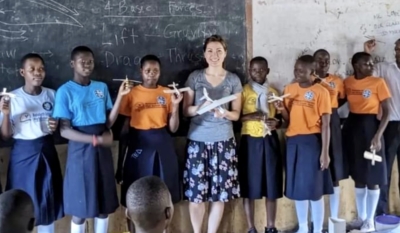
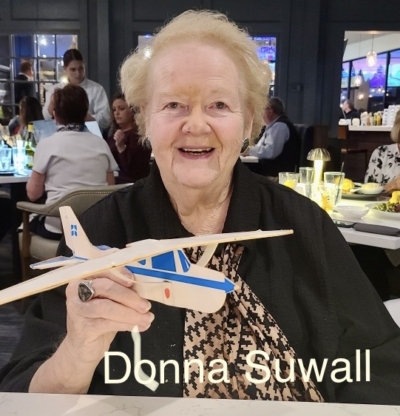
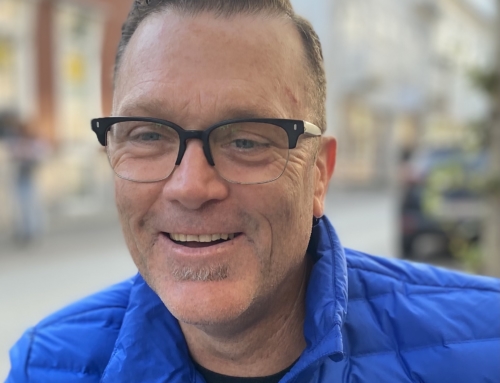
Leave A Comment